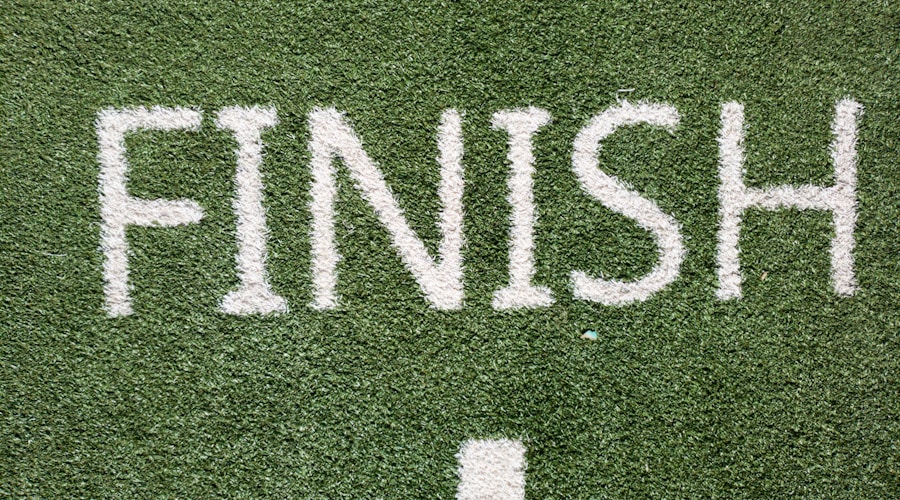Welcome to a new perspective on expertise and motivation! In this article, we'll explore the 10,000-Hour Rule, made famous by Malcolm Gladwell in his book "Outliers," and challenge the traditional view on what it takes to become an expert in any field.
You may have heard the 10,000-Hour Rule before - the notion that it takes 10,000 hours of practice to achieve mastery in a specific skill or discipline. This concept has been widely accepted and has influenced countless individuals in their quest for expertise. However, recent research and new insights have sparked a reevaluation of this rule, leading to a more holistic understanding of what it truly takes to become an expert in a particular field.
In this article, we'll delve into the limitations of the 10,000-Hour Rule and explore the vital role of talent, the distinction between quality practice and quantity of time, as well as the external factors that influence expertise beyond sheer practice hours. Moreover, we'll discuss new models for mastering skills, as well as the often overlooked but crucial role of motivation in achieving success.
So, if you're ready to gain a new perspective on expertise and motivation, buckle up as we embark on this enlightening journey together!
Understanding the 10,000-Hour Rule
So, you've probably heard of the 10,000-Hour Rule, popularized by Malcolm Gladwell in his book Outliers. According to this rule, if you practice something for 10,000 hours, you'll become an expert. It's an enticing idea, isn't it? The thought that with enough determination and hard work, you can master any skill.
But is it really that straightforward? The 10,000-Hour Rule has been widely accepted, but recent research has called its validity into question. Before you commit to spending 10,000 hours on a pursuit, let's take a closer look at this rule.
There's no denying that practice is crucial to mastering a skill, but does it really take exactly 10,000 hours? Researcher Brooke Macnamara and her team sought to test this theory, and their findings shed new light on the concept. Macnamara states, "The evidence shows that there is certainly a strong relationship between practice and achievement, but the 10,000-Hour Rule is an oversimplification."
So, what does this mean for you? How many hours should you be putting into your craft? And what else factors into the equation? Let's dive deeper into the complexity of expertise and motivation to uncover a more well-rounded understanding.
Challenging the Rule: Key Studies
Let's delve into some of the studies that have brought the 10,000-Hour Rule into question. One study that has gained widespread attention is the one conducted by Macnamara, Hambrick, and Oswald in 2014. They analyzed data from 88 studies of musical practice and performance and found that practice time only accounted for about 12% of individual differences in music performance1 . This suggests that other factors, such as innate talent or the quality of practice, play a more significant role in expertise.
Another compelling study was conducted by Brooke Macnamara and her colleagues in 2014. Their research on chess players found that "deliberate practice" – which involves specific, goal-oriented activities designed to improve performance – accounted for only about a quarter of the variance in performance2 . This finding challenges the notion that sheer quantity of practice is the primary driver of expertise.
These key studies, among others, demonstrate that there is more to expertise than simply putting in 10,000 hours of practice. They point to the importance of considering the quality of practice, individual talent, and other influences that contribute to expertise.
By understanding the limitations of the 10,000-Hour Rule, you can gain a more nuanced perspective on how expertise is developed and what factors truly drive success in mastering a skill.

More Than Just Hours: The Role of Talent
When discussing expertise and mastery, the focus often tends to lean heavily on the number of hours put into practice. However, the role of talent cannot be ignored. As Malcolm Gladwell himself noted, "In cognitively demanding fields, there are no naturals."
Talent plays a significant role in the development of expertise. While practice is essential, individuals with a natural inclination towards a particular skill are more likely to excel in that area. As Steven Pinker, a renowned psychologist, points out, "Talent is a more potent predictor of success than practice, but people are loath to admit it."
Research by psychologists Zach Hambrick and Brooke Macnamara also supports the idea that talent is a crucial factor in expertise. They found that practice accounted for only about 12% of individual differences in performance in music and chess, two domains where the 10,000-hour rule is often cited. The remaining 88% is attributed to other factors, including talent and genetic predispositions.3
Talent can manifest in various forms, and it's not limited to the traditional understanding of innate abilities. As Angela Duckworth, a psychologist and author, suggests, "Talent is how quickly your skills improve when you invest effort. Achievement is what happens when you take your acquired skills and use them."4
In essence, talent complements practice and can significantly impact an individual's ability to master a skill. It's not just about the hours put in, but also the inherent abilities that one brings to the table.
Quality Practice vs. Quantity of Time
When it comes to expertise and mastering a skill, the quality of practice is just as crucial as the quantity of time spent practicing. You may have heard the popular saying "practice makes perfect," but according to recent research, it's not just any practice that leads to mastery.
According to Anders Ericsson, one of the leading experts in the field of expertise, "The key factor is not the amount of time you spend, but the quality of your practice." This means that the way you approach your practice is more important than the number of hours you put into it.
In his book "Peak: Secrets from the New Science of Expertise," Ericsson emphasizes the importance of deliberate practice, which involves "repeatedly attempting tasks just beyond your current level of competence." This type of focused and mindful practice allows you to constantly challenge yourself and improve your skills.
In a study published in the Psychological Science journal, researchers found that the quality of practice was a better predictor of performance than the quantity of practice in various domains, including music, sports, and games. The study revealed that individuals who engaged in high-quality practice, characterized by specific goals, immediate feedback, and intense focus, showed more improvement compared to those who simply logged more hours.
In essence, it's not just about putting in the hours; it's about how you use those hours. Focus on pushing yourself beyond your comfort zone, seeking feedback, and staying engaged in the process. Malcolm Gladwell, the author who popularized the 10,000-hour rule, mentioned in an interview, "It's not just practice, practice, practice. It's not just the hours."
So, rather than mindlessly repeating the same tasks, challenge yourself with new variations, seek feedback from mentors or coaches, and maintain a high level of concentration during your practice sessions. By doing so, you can optimize your learning and skill development.
Find a balance between quantity and quality, and remember that deliberate practice is the key to true mastery.

Expertise: Influences Beyond Practice
When it comes to expertise and mastery, it is crucial to recognize that practice is just one piece of the puzzle. While intentional and focused practice is important, there are other influences that contribute to becoming an expert in any field.
Research has shown that genetics and innate abilities play a significant role in individual differences in skill acquisition. As psychologist K. Anders Ericsson noted, "In many areas of human expertise, individuals start with an inherited ability and then hone it through training and practice."
Furthermore, environmental factors such as access to resources, mentorship, and support also greatly impact one's ability to excel in a particular area. Angela Duckworth, a psychologist and author, emphasizes the importance of grit and perseverance in the journey towards expertise. She asserts, "Talent is not just about your potential, it's about what you do with that potential. Grit - the combination of passion and perseverance - is a key ingredient for success."
It is essential to recognize the multifaceted nature of expertise and acknowledge the various influences that contribute to the development of skills. As you continue to pursue mastery in your chosen field, remember that it's not solely about the hours you put in, but also about your innate abilities, the support you receive, and your tenacity in the face of challenges.
New Models for Mastering Skills
When it comes to mastering a skill, it's important to consider alternative perspectives that go beyond the 10,000-hour rule. One such model is the "Deliberate Practice Model," which suggests that deliberate, focused practice is more important than the sheer number of hours spent. Anders Ericsson, the psychologist behind this model, states, "The road to excellence is not just a question of the amount of practice but also the nature of the practice."
Another model worth considering is the "Chunking Theory," which proposes that expertise is built through the mastery of smaller, interconnected units of knowledge. As Jeff Haden, author of "The Motivation Myth," puts it, "Mastery isn't simply about the number of hours you put in. It's about how you spend those hours—about breaking your expertise down into smaller, more manageable pieces."
By incorporating these new models into your approach to mastering a skill, you can focus on the quality of your practice and the strategic organization of your learning process. This can potentially save you time and effort, enabling you to achieve expertise more efficiently.
Motivation: The Unsung Hero of Success
When it comes to achieving expertise, motivation plays a crucial role that often goes unnoticed. It is said that motivation is the driving force behind the 10,000-hour rule, but it goes beyond just putting in the hours. The psychology of motivation is complex and powerful, and it can make all the difference between mediocrity and mastery.
Motivation is what keeps you going when the going gets tough. As Angela Duckworth, a psychologist and author of "Grit: The Power of Passion and Perseverance," puts it, "Grit is passion and perseverance for very long-term goals. Grit is having stamina. Grit is sticking with your future, day in, day out, not just for the week, not just for the month, but for years, and working really hard to make that future a reality."
Motivation is not just about willpower and determination; it is also about finding purpose and joy in the journey. Anders Ericsson, the psychologist behind the 10,000-hour rule, himself acknowledged the critical role of motivation. He said, "Deliberate practice is not only the most efficient method for improving performance, but also the most effective method for cultivating motivation. Most people who want to get better at something will not take the necessary steps to improve."
So, how do you stay motivated on the long and arduous path to expertise? Firstly, it's important to set clear and meaningful goals for yourself. According to Daniel Pink, the author of "Drive: The Surprising Truth About What Motivates Us," "The most deeply motivated people – not to mention those who are the most productive and satisfied – hitch their desires to a cause larger than themselves." By connecting your pursuit of expertise to something bigger than yourself, you will find the intrinsic motivation to keep going, even when faced with challenges.
Furthermore, creating a supportive environment for yourself can also fuel your motivation. Surround yourself with people who believe in you and your goals. Find mentors and role models who inspire you and provide guidance. As Bill Bradley, a former professional basketball player and U.S. senator, once said, "Ambition is the path to success. Persistence is the vehicle you arrive in."
In conclusion, while the 10,000-hour rule may have dominated the conversation around expertise, the role of motivation cannot be overstated. It is the fuel that powers the engine of deliberate practice and keeps you moving forward. By understanding and harnessing the power of motivation, you can propel yourself towards mastery in your chosen field.
Conclusion
You've now seen how the 10,000-hour rule doesn't paint the full picture when it comes to expertise and mastery. We've explored the role of talent, the significance of quality practice, the various influences on expertise, and the impact of motivation. As Malcolm Gladwell himself noted in a 2014 interview, "10,000 hours is not a magic number. It's not that simple. It never was".
It's clear that there's so much more to becoming an expert in any field than just putting in the hours. The journey to mastery is a complex and multifaceted one, influenced by a myriad of factors. Whether it's the innate talent you possess, the type of practice you engage in, or the level of motivation that drives you, all these elements play a crucial role in shaping your path to expertise.
As you continue on your own journey to mastering a skill or field, remember that expertise is more than just a numbers game. It's about the combination of dedicated practice, natural talent, and unwavering motivation. Keep pushing yourself, stay inspired, and don't feel discouraged by the notion of a fixed 10,000-hour benchmark. As Ericsson, the original researcher behind the 10,000-hour rule, stated, "The number of hours of practice alone is not a sufficient foundation for achieving the level of expert performance".
So, keep honing your skills, stay driven, and embrace the complexities that come with becoming an expert in your chosen domain.

2Macnamara, B. N., et al. (2014). The role of deliberate practice in the acquisition of expert performance. Psychological Review, 121(3), 390-394.
3Malcolm Gladwell, Outliers: The Story of Success (2008)
4Steven Pinker, The Blank Slate: The Modern Denial of Human Nature (2003)
5Zach Hambrick and Brooke Macnamara, "Beyond Born versus Made: A New Look at Expertise," American Psychologist (2016)
6Angela Duckworth, Grit: The Power of Passion and Perseverance (2016)
7K. Anders Ericsson, "Peak: Secrets from the New Science of Expertise"
8Anders Ericsson, "Peak: Secrets from the New Science of Expertise"
9Jeff Haden, "The Motivation Myth: How High Achievers Really Set Themselves Up to Win"
10Anders Ericsson, "Peak: Secrets from the New Science of Expertise"
11Malcolm Gladwell, "Outliers: The Story of Success" (2008)
12K. Anders Ericsson, "Peak: Secrets from the New Science of Expertise" (2016)
